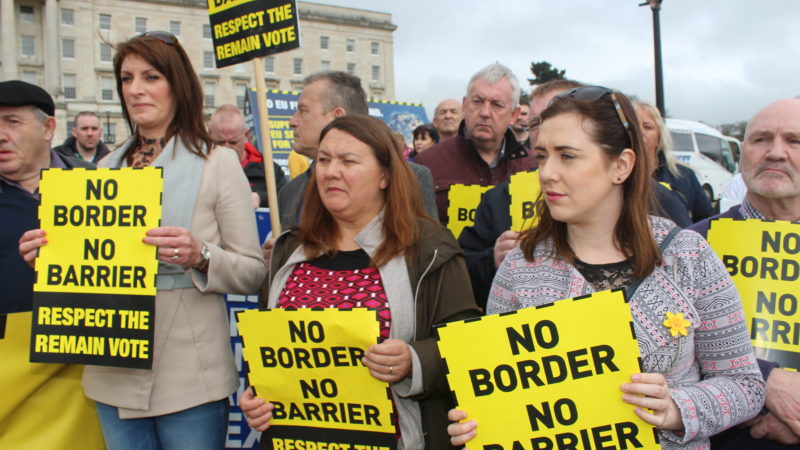How Brexit threatens the Northern Ireland peace process - and what must happen now.

It has been easy for visitors in recent years to point to statistics suggesting there is peace in Northern Ireland.
But behind occasional physical reminders of the past – like peacelines and border walls – there are deeply ingrained and sincerely held views: ones which form the delicate political complexity of Northern Ireland.
It was into this complexity that Brexit arrived as a wrecking ball. Even as the final results of the referendum were still being declared, the conversation in Belfast had already turned to the sustainability of our power sharing arrangements.
And while Northern Ireland was identified as an area of serious concern during the referendum, the reasons why were rarely debated in debate.
So why is it that Brexit poses such a threat to the peace process?
Put simply, much of the political creativity behind Northern Ireland’s Good Friday Agreement drew heavily from the European project. At first glance there are the more obvious parallels: a codified respect for difference, layered institutional representation, and the understanding that transition from conflict requires integration.
But it was the ethos behind these principles which allowed for a more fundamental reassessment – a reimagining of the relationships between nationality, place and the state.
It is from this pluralist idea that I and my neighbour – both from the same place – may have different but equal national identities. And it is an idea which is at odds with the isolationism encouraged by the proponents of Brexit.
Reopening these issues has caused political relationships to deteriorate rapidly. With the collapse of the Assembly we find ourselves in a seemingly contradictory position: Northern Ireland finds itself as one of the key areas of the Brexit negotiations, without having any meaningful input.
If we have learnt anything from the peace process in Northern Ireland, it is that all partners must be around the table to find a solution.
Over the last year we have become used to hearing a number of expressions in headlines: ‘special status’, ‘frictionless border’ etc. While the commitments from our European partners are welcome, there is a superficial positivity to many of these terms.
And while the Joint Report between the UK and EU negotiators does its best to reassure all stakeholders, it runs the risk of promising too much to too many.
The task of transforming the Report’s principles into a legal text still lies ahead and the process will not be an easy one. The question remains of whether the British Government, with its supply and confidence arrangement with the DUP, are willing or even able to live up to their commitments to Northern Ireland.
What is clear however is that all partners in these negotiations must be mindful of the fact that the people of Northern Ireland voted to remain within the European Union.
The rights and protections offered by the Good Friday Agreement are still treasured and cannot be squandered. Defending the pluralism of the peace process must be a key priority for all involved in the negotiations.
Cllr Donal Lyons is Chair of the European Movement Northern Ireland




3 Responses to “Northern Ireland needs a voice against the Brexit wrecking ball”
William
I believe that Northern Ireland along with Wales, Scotland, Cornwall and most of the north of England, are thorns in the side of our London leaning politicians.
It is high time that the government poked it,s head out of it,s little box and had a good look around.
Messing with the peace process would be the biggest mistake it could make.
William McArdle
Well said. The so called United Kingdom is anything but. Most all brexiteer institutions and right wing groups (UKIP, Britian First etc. are English and care little about other parts of the ‘realm’ . Few Clapham bus riders in England understand anything about the island of Ireland and the history of domineering English intervention. Even within England itself there is little ‘Union’ . London and the home counties have always lorded over the ‘also ran’ North.
Jimmy glesga
The Sinn Fein IRA, the SNP, the Ulster Unionists campaigned against joining the EEC.